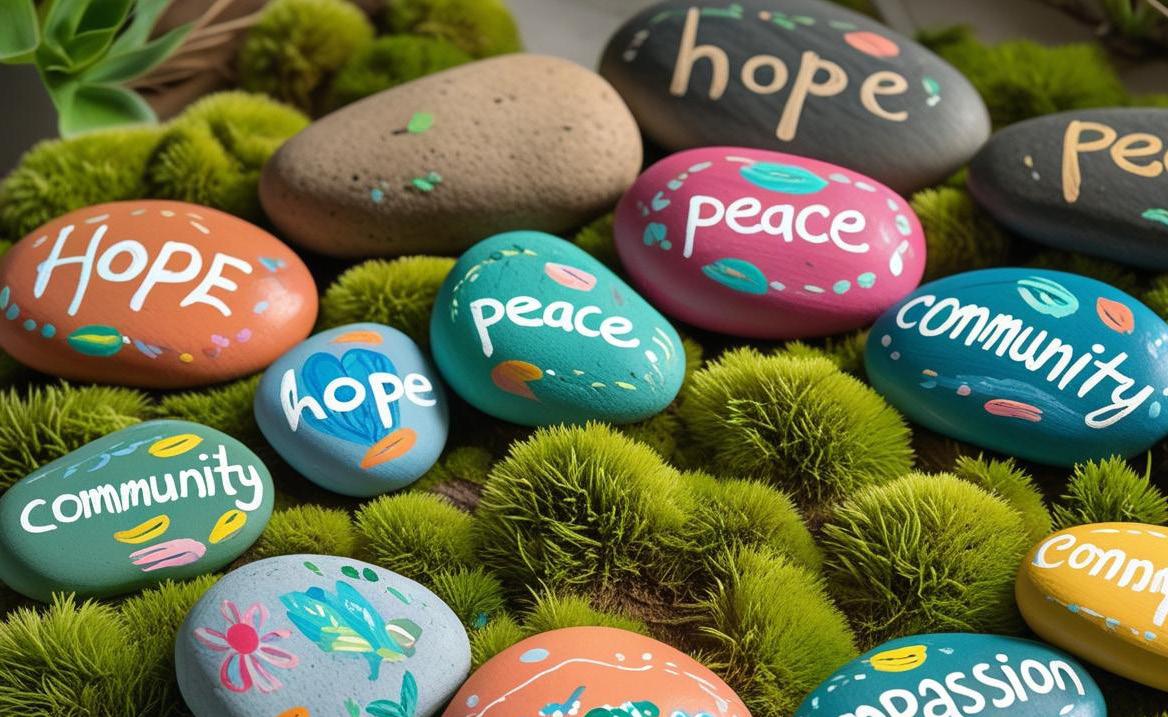DIVERSITY | DIALOGUE | FAITH | FREEDOM
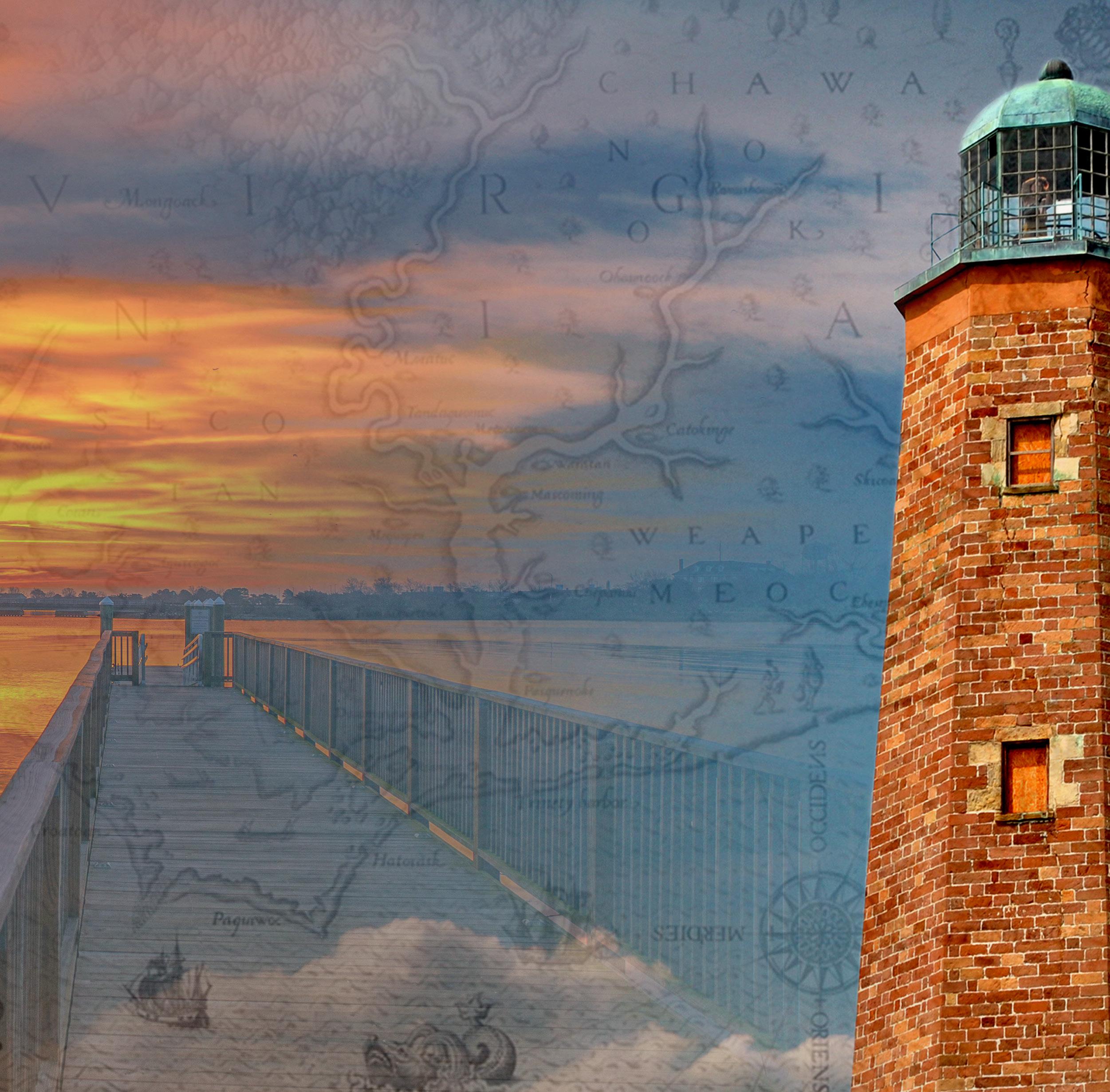

DIVERSITY | DIALOGUE | FAITH | FREEDOM

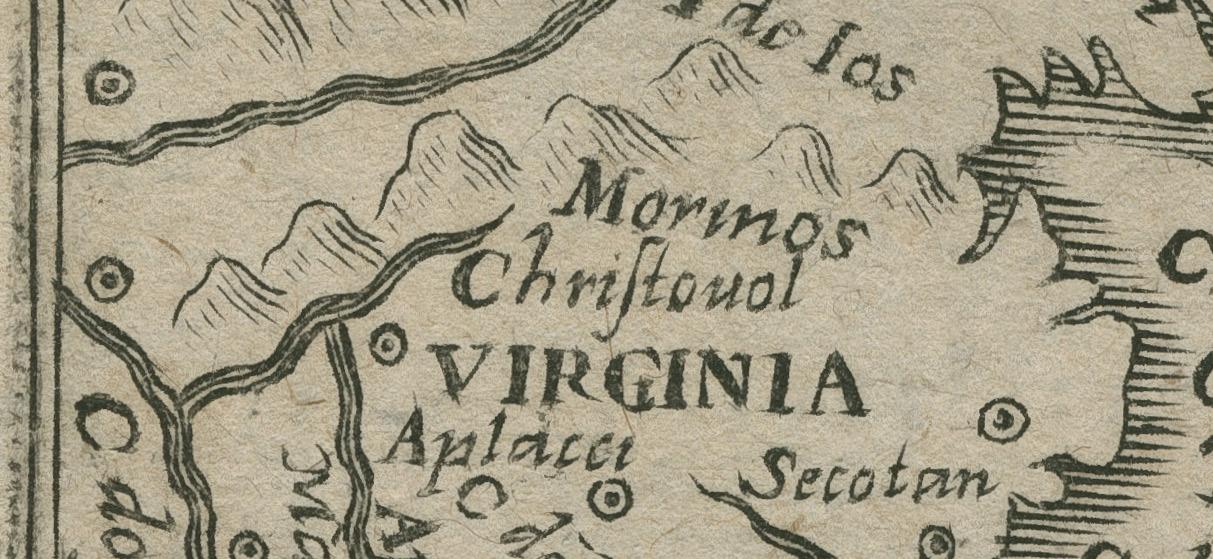
About 20 years ago when my (Craig’s) children were growing up, we frequently would go to the Portsmouth Children’s Museum. To get there we walked past the Confederate Memorial in downtown Portsmouth. One day my son, Teddy, about eight at the time, was walking a little behind me. I looked back and saw him reading the inscription on the memorial. He turned to me with a quizzical look and asked, “Have you seen this before? A Confederate Memorial. Why is it here?”
Similarly, about six months ago, a college student was talking about the Great Dismal Swamp. He already knew the basics—that it was vast, wild, swampy, and close to home. But when he learned that in the 1800s, entire communities of formerly enslaved people had carved out lives deep within that swamp, something shifted.
“Wait, they lived out there?” he asked. Under his breath he said something like, “Why didn’t we ever learn this in school?”
These are the sorts of questions that drive much of the work we do at the Robert Nusbaum Center. Because history isn’t just names and dates. It’s stories—challenging, inspiring, sometimes troubling, and often hidden— that shape who we are today and where we go next.
At the Robert Nusbaum Center, we’re rooted in the idea that education is about more than acquiring knowledge; it’s about deepening understanding and cultivating compassion.
Education has to do with knowledge, but it also has to do with developing the right dispositions and the kinds of skills that can lead to positive change. Inspired by the teachings of John Wesley, we hold fast to the belief that loving one another—even when we don’t always think alike—is not just possible but necessary.
We’re highlighting voices and stories that don’t often make the textbooks.
Our campus is full of stories worth telling. Stories of individuals whose vision, generosity, and bold leadership continue to shape our community in lasting ways. Their impact is not confined to buildings or titles—it lives on in students inspired to lead, serve, and imagine something better.
And the land we stand on tells a story, too. Once a passage to freedom for emancipated people, it remains sacred ground, a place where memory and mission meet.
This fall, the Robert Nusbaum Center invites you into these living histories. We’re highlighting voices and stories that don’t often make the textbooks, including those who found refuge in the Dismal Swamp, others who responded to the terror of Yellow Fever, a woman who was scapegoated as a witch, maps that told their own—nongeographical—stories of Virginia, artistic works that raise deep questions, and enslaved Black men who fought for the king in the Revolutionary War. In the process we recognize local individuals whose courage helped bend the arc of history toward justice. Their stories show us that real change is slow and difficult but always possible. They offer not only a glimpse into the past but a guide for the future.
Through events, conversations, and community partnerships, we explore what it means to inherit these legacies and consider how we can carry them forward. Because legacies of love, learning, and leadership don’t just belong to the past. They belong to all of us, here and now.
Join us as we look both at the past and to the future,
We look forward to seeing you!
Craig and Kelly “ ”
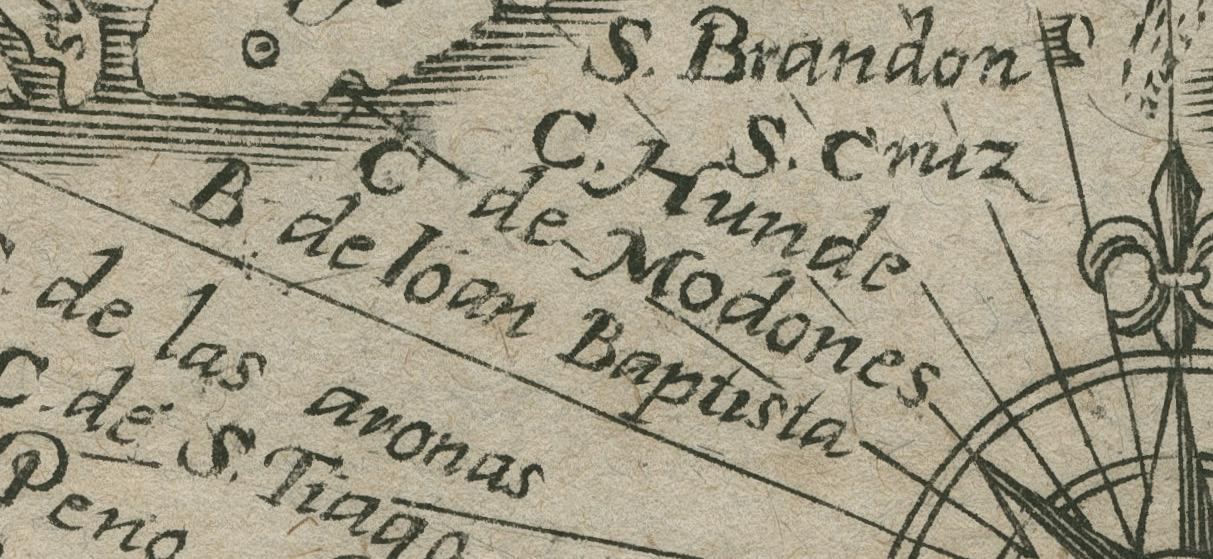
Thursday, September 18 | NOON -12:50 PM BROCK COMMONS
What has “Virginia” meant over the centuries? It depends on when you asked—and on which map you looked at. In this engaging talk, we explore how maps captured not just geography but ambition, imagination, and power. In the 1500s, “Virginia” was an undefined stretch of eastern North America. In the 1600s, Captain John Smith’s version centered on the Chesapeake Bay. By the 1700s and 1800s, maps stretched Virginia’s borders to the Mississippi— until wars and politics carved it down to what we know today. Join us as we see how these historical maps offer a fascinating window into how people once saw our world— and their place in it.
William C. Wooldridge is the author of Mapping Virginia: From the Age of Exploration to the Civil War (University of Virginia Press, 2012). He has served as a trustee of the Virginia Historical Society, President of the Norfolk Historical Society and the John Marshall Foundation. Wooldridge retired as Vice President-Law of Norfolk Southern Corporation.
Please visit Wesleyan Engaged’s resource table to pick up your free pocket constitution and voter registration materials.
September 17 is recognized in the United States as Constitution & Citizenship Day to commemorate the formation and signing of the U.S. Constitution on September 17, 1787.
Thursday, September 11 | NOON -12:25 PM PEACE GARDEN
What Should We “Never Forget”?: Local Lives that Still Inspire
The words “Never Forget” are closely associated with the devastation of September 11. What we can’t afford to forget is what happened after that horror. Amid unimaginable loss and fear, people came together. First responders rushed into danger. Strangers opened their homes. Communities gathered in vigils, donated blood, and extended kindness across lines of race, faith, and politics.
Join the Robert Nusbaum Center in the Peace Garden as we honor the memory of September 11 and remember the enduring legacy of those who helped us heal from tragedy.
This year, we also lift the stories of six “helpers” from Coastal Virginia, helpers who stepped up when there was a need, shaped our region, and made lasting impacts far beyond our borders. From bold acts of defiance to quiet acts of care, these individuals remind us that history is shaped by those who, despite risk to themselves, still made the choice to help.
Together, we reflect, remember, and participate in a symbolic gesture of peace by placing hand-painted rocks—created by VWU students—at the base of the Peace Pole. Each is a tribute to the enduring power of memory, community, and the call to be a helper in our own time.
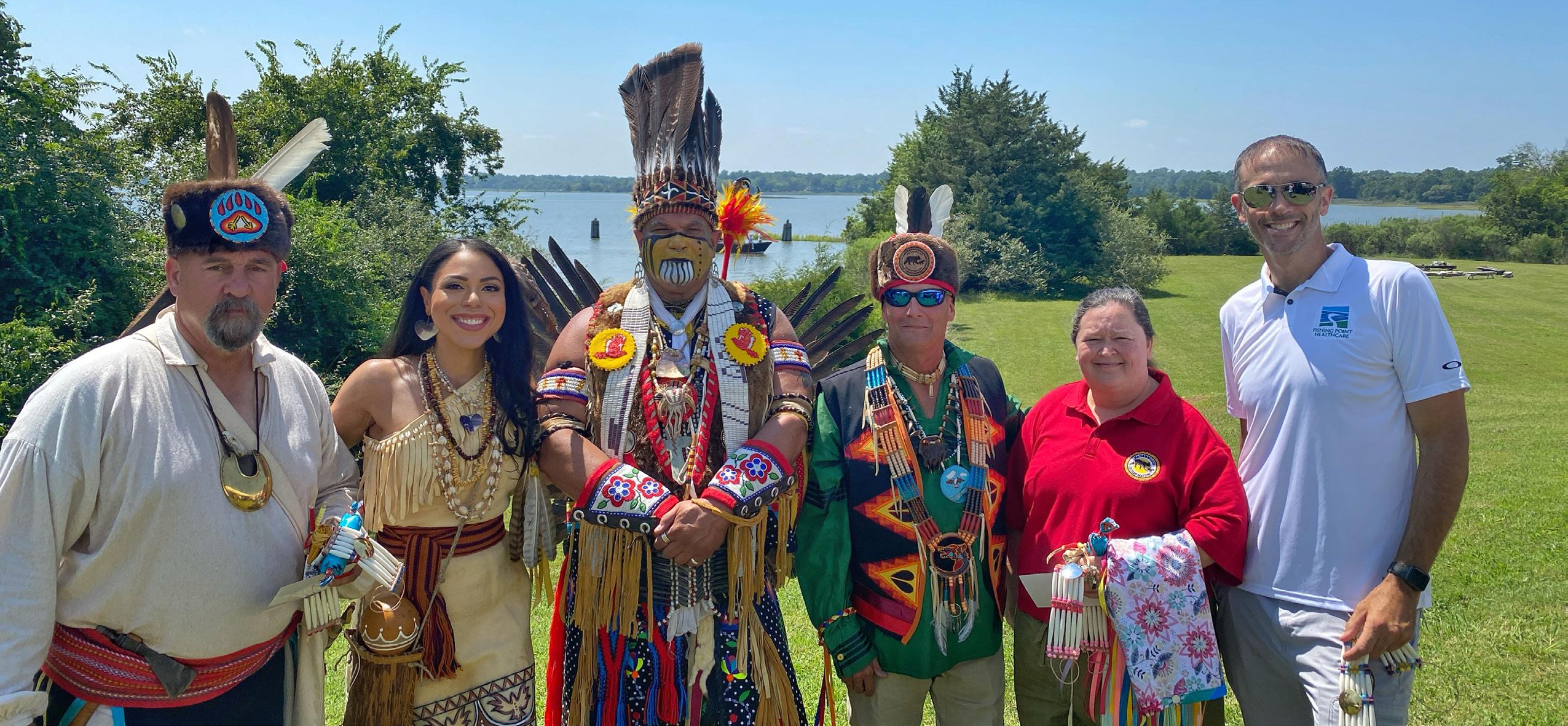
Thursday, October 23 | NOON - 12:50 PM | PEACE GARDEN & ROBERT NUSBAUM CENTER, CLARKE HALL
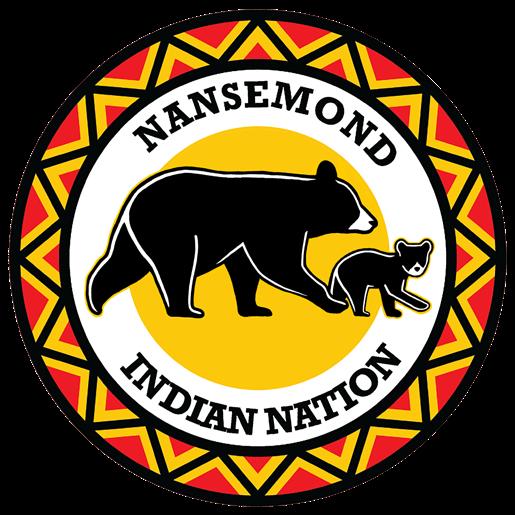
Just 70 years ago, before this land became home to our campus, it was farmland. Before that, it was home to newly emancipated Black Americans transitioning to freedom. And long before any of that, this place was part of the ancestral homeland of the Nansemond people—members of the Powhatan Confederacy who lived in longhouses near local waterways.
As part of our semester-long focus on legacy, we gather with members of the Nansemond Indian Nation for a ceremonial repatriation of ancestral artifacts that have been held by the university for nearly sixty years. This moment is not only about the past—it is a step toward honoring the enduring presence of the Nansemond people and recognizing the stories still rooted on our campus.
This program includes the dedication of a permanent land-acknowledgment plaque in the Peace Garden and recognizes the Nansemond people as the original stewards of the land on which VWU stands.
Joining us from the Nansemond Indian Nation are Nikki Bass and Thomas Badamo. Nikki Bass serves as Assistant Chief of the Nansemond Indian Nation and Director of the Office of Federal Acknowledgment in Washington, D.C. Thomas Badamo is Council Treasurer, Assistant Chief Emeritus, and President of the only Native American-led chapter of the Sons of the American Revolution.
Following the ceremony in the Peace Garden, all are invited to the Robert Nusbaum Center to view a display of additional Native American artifacts from across the United States and to enjoy light refreshments.
Support for the land-acknowledgement plaque provided by the William Granville Sale, Jr. Award given by the Presbytery of Eastern Virginia Peacemaking Committee in honor of the legacy of longtime committee member Bill Sale.
We are pleased to promote the university's production of Larissa FastHorse’s The Thanksgiving Play. This satirical, joyful, absurd comedy is about four well-meaning white artists trying to stage a culturally sensitive Thanksgiving pageant without any Native voices. The play highlights the blind spots of good intentions and the deeper question of who gets to tell the story. Join us Friday through Sunday, November 14, 15, and 16. For more information and tickets, go to The Arts at VWU online.
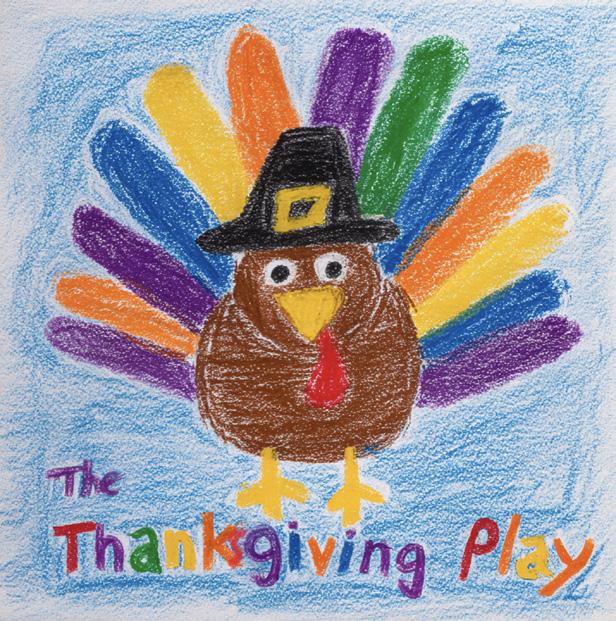
Thursday, November 13
NOON –12:50 PM | BLOCKER AUDITORIUM
ANDREW
The revolution wasn’t all powdered wigs and tea parties. The real chaos started 250 years ago in 1775 Virginia, when Lord Dunmore, a British governor in Virginia, offered freedom to enslaved people if they fought for the king. Suddenly Black Virginians joined the fight, loyalists and patriots lost their minds, the city of Norfolk was on fire, and Jefferson called it a “perfect frenzy” as the colonies hurtled toward revolution. Andrew Lawler’s book A Perfect Frenzy uncovers how the fight for Black freedom set America on fire— literally—pushing the colonies to declare independence.
LAWLER PEGGY HAILE
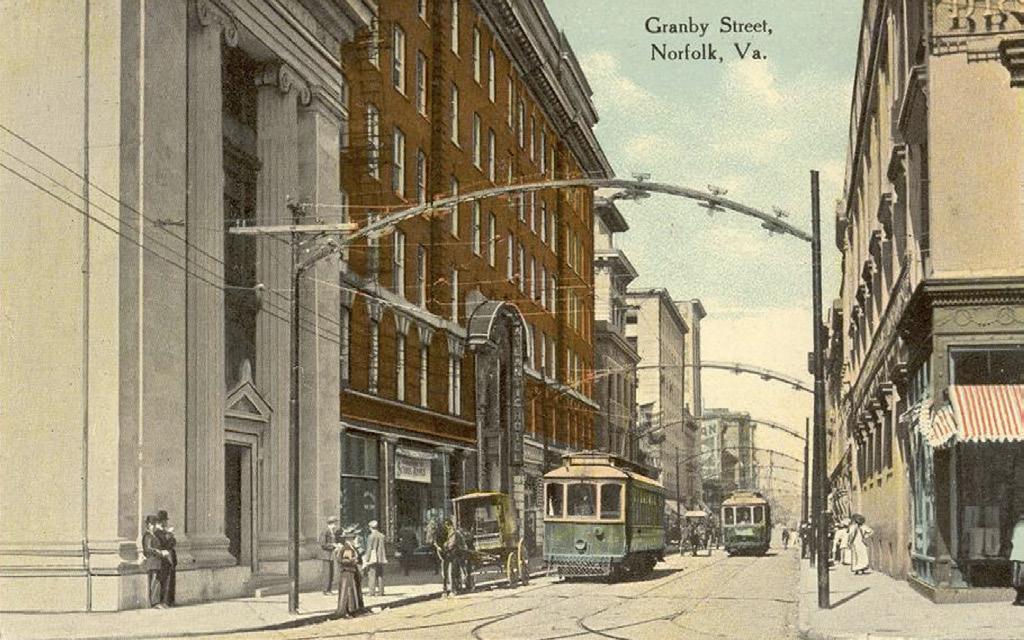
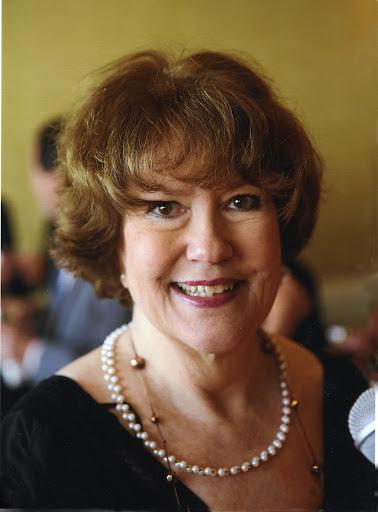
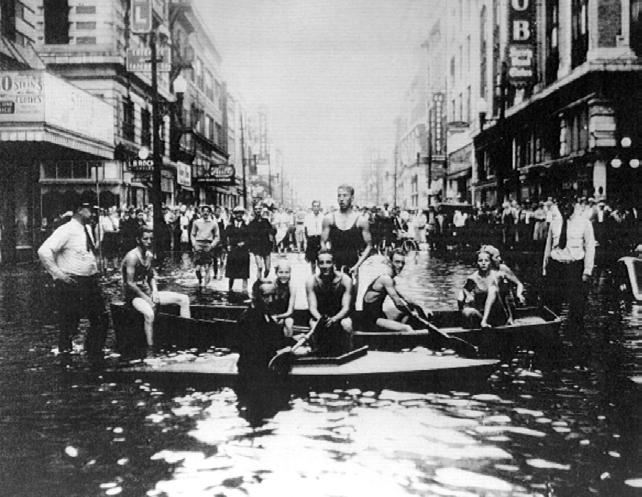
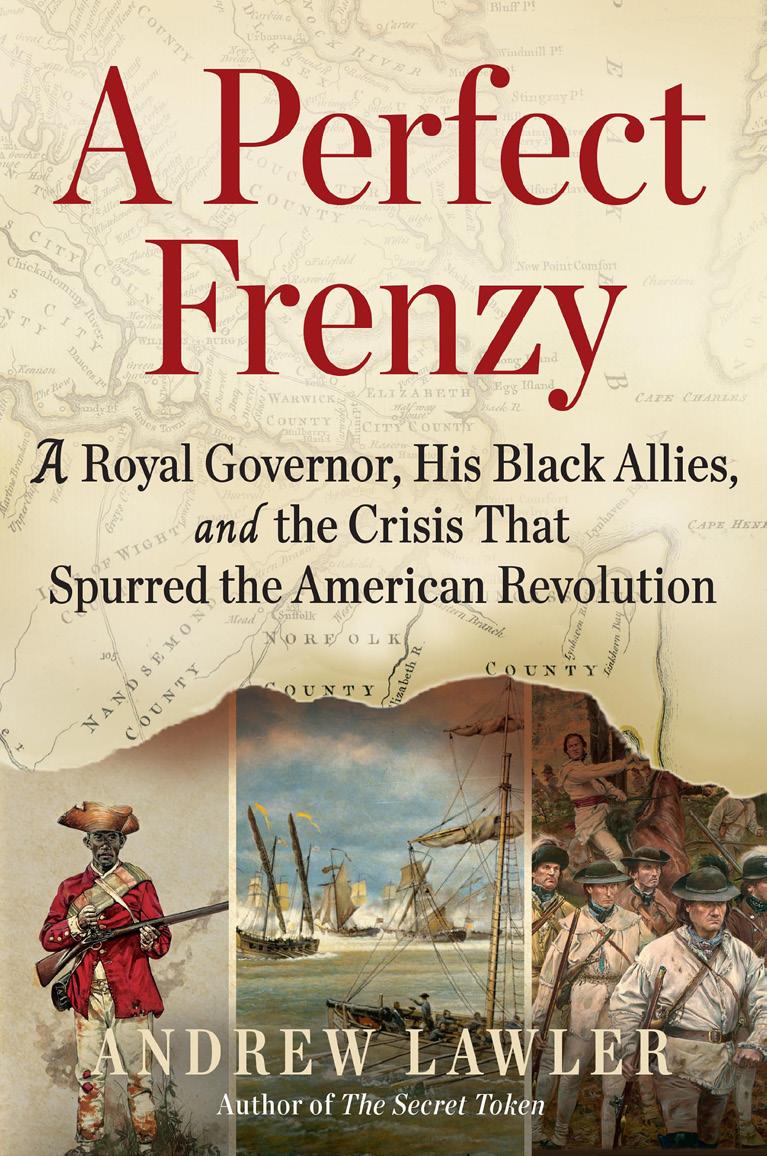
Andrew Lawler is the author of A Perfect Frenzy: A Royal Governor, His Black Allies, and the Crisis That Spurred the American Revolution (Atlantic Monthly Press, 2025). He also wrote the national bestseller The Secret Token about the lost colony of Roanoke, and the award-winning Under Jerusalem. As a journalist, Lawler has contributed more than a thousand articles to publications such as The New York Times, The Washington Post, National Geographic, and Smithsonian. He is a contributing writer for Science and a contributing editor for Archaeology
Thursday, October 2
NOON –12:50 PM | BROCK COMMONS
Stories build connections. They give us a sense of place and help us understand our own place in the community and in the world. The stories that impact us most strongly are seldom national in scope. Rather, they come from our family, our environment, and our own reflections.
To that end, former Norfolk City Historian Peggy Haile McPhillips shares a series of Norfolk stories that focus on themes ranging from the shape of Norfolk to an incendiary Sunday, from an Irish orphan to horse tracks. How does that past shape who we are and how we understand ourselves today?
Peggy Haile McPhillips is a lifelong resident of Norfolk and for decades served as the City Historian. She is the author of Remembering Norfolk and Historic Photos of Norfolk. McPhillips currently serves as President of the Norfolk Historical Society and Vice President of the Friends of the Myers House of the Chrysler Museum of Art. She has also served on the boards of the Norfolk Police Museum and the Great Bridge Battlefield & Historic Waterways Foundation.
Thursday, October 16 | NOON –12:50 PM | BROCK COMMONS
Why does the story of Virginia’s most famous accused witch still haunt—and enchant—us? More than just a tale of colonial injustice, the legend of Grace Sherwood, the so-called “Witch of Pungo,” has become a mirror we hold up to ourselves. This program invites us to explore how Sherwood’s story has evolved over time: from persecution and spectacle to folklore, commemoration, and even civic pride.
What does our retelling—and re-teaching—of her tale say about who we are and who we aspire to be? How do schools, reenactments, and pop culture shape our understanding of justice, gender, and belonging? Moore traces the strange morphology of a story that refuses to sink—and highlights what that story’s persistance reveals about our community and our conscience.
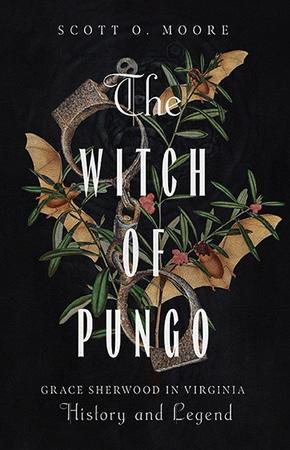
Scott O. Moore, Ph.D., is Associate Professor of History and Assistant Department Chair at Eastern Connecticut State University. He earned his Ph.D. in Modern European History from the University of Maryland, College Park. Moore’s research examines the complexity of identity and how cultural, political, and social institutions shape people and their communities. His work also explores the intersections of historical memory, folklore, and identity.
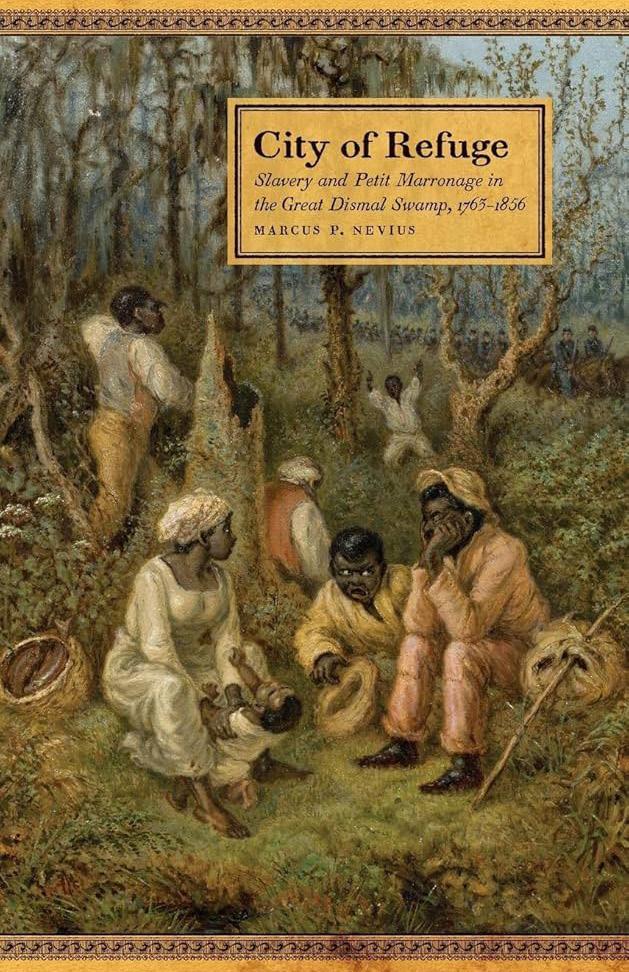
Thursday, October 30 | NOON -12:50 PM | BROCK COMMONS
What if resistance didn’t look like running away but hiding in plain sight?
This talk uncovers the stories of enslaved people who escaped into the eerie, snake-filled Great Dismal Swamp—23 miles from our campus—and built secret lives just miles from the plantations they fled.
This isn’t the Underground Railroad. It’s a raw, overlooked form of rebellion called petit marronage, where a kind of freedom was achieved through barter and survival. Imagine ghost towns, secret trade networks, swamp survival, and the assertion of agency from slave-labor camps.
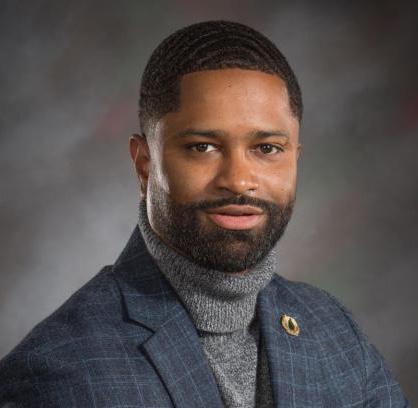
Marcus P. Nevius, Ph.D., holds a joint appointment as Associate Professor of Slavery and Atlantic World History at the Kinder Institute on Constitutional Democracy and as Professor in the Department of History at the University of Missouri. He is the author of City of Refuge: Slavery and Petit Marronage in the Great Dismal Swamp, 1763–1856 (University of Georgia Press, 2020). Nevius’s research explores slavery and the Revolution, Confederation, and Early Republican periods in the United States.
Thursday, September 25 | NOON -12:50 PM | BROCK COMMONS
What if the air you breathe, the heat radiating from cracked asphalt, and the highway bisecting your neighborhood weren’t accidents—but consequences of intentional policy?
Urban geographer Johnny Finn exposes how century-old policies still systematically harm marginalized communities in Coastal Virginia. Finn looks at how those harms endure in the form of environmental degradation, chronic illness, and shortened life expectancy.
Drawing from his groundbreaking GIS research, he connects the dots between local injustices and national patterns, showing how structural racism gets embedded in our landscapes—and our bodies. This urgent and visually striking talk exposes the cost of inequality and asks: If our geography was shaped by injustice, how can we reimagine it for justice?
Johnny Finn, Ph.D., is Associate Professor of Geography and Chair of the Department of Sociology, Social Work, and Anthropology at Christopher Newport University. He also serves as a Community-Engaged Learning Facilitator for Eastern Virginia Medical School. His research explores the economic, environmental, and health impacts of persistent racial segregation in the United States. Finn has published more than 40 articles, book chapters, reports, and op-eds.
This annual lectureship pays tribute to the life of Catharine Cookson, Ph.D., J.D., the first Director of the Robert Nusbaum Center, formerly the Center for the Study of Religious Freedom.
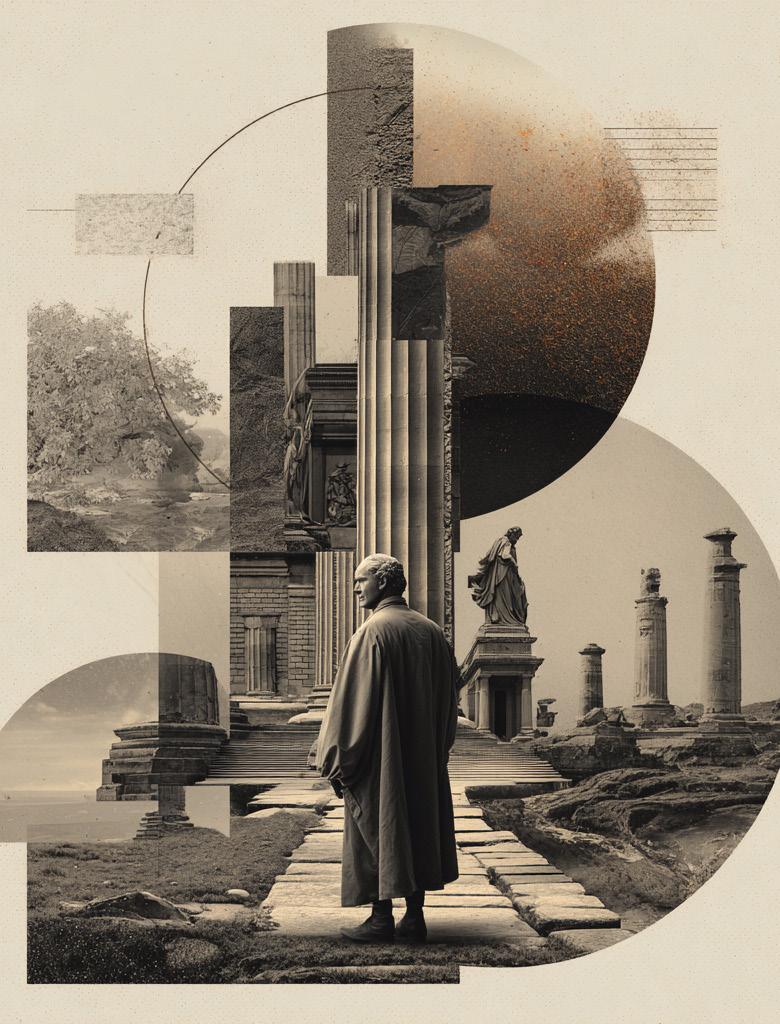
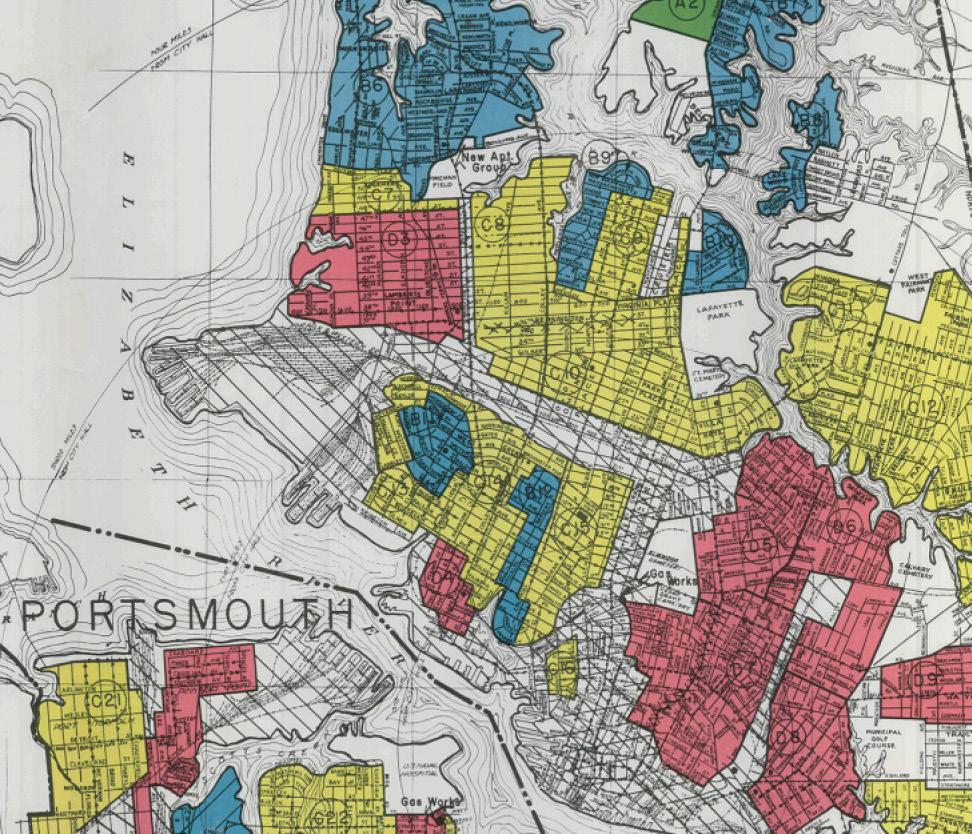
Thursday, November 20 | NOON -12:50 PM | BLOCKER AUDITORIUM
Public sites and structures shape what we honor and what we ignore. They can embody the legacy of one group and the trauma of another—the Confederate Memorial in Portsmouth once stood on the site of a slave whipping post, and the Emancipation Oak in Hampton is more than just a tree. So, how should public sites be designed in light of complex histories such as these? How can we develop a consistent view when historical pride, personal attachment, and moral discomfort share the same ground? Levi Tenen leads a provocative exploration of these issues, and the ethics of public space more generally, focusing on sites in Coastal Virginia and beyond.
Levi Tenen, Ph. D. (Indiana University, Bloomington) is Assistant Professor of Philosophy at Virginia Wesleyan University and Coordinator of the University’s Ethics Bowl Team. He researches at the intersection of ethics, political philosophy, and environmental law. This term, he is teaching the inaugural version of Art, Monuments, and Morality at VWU.
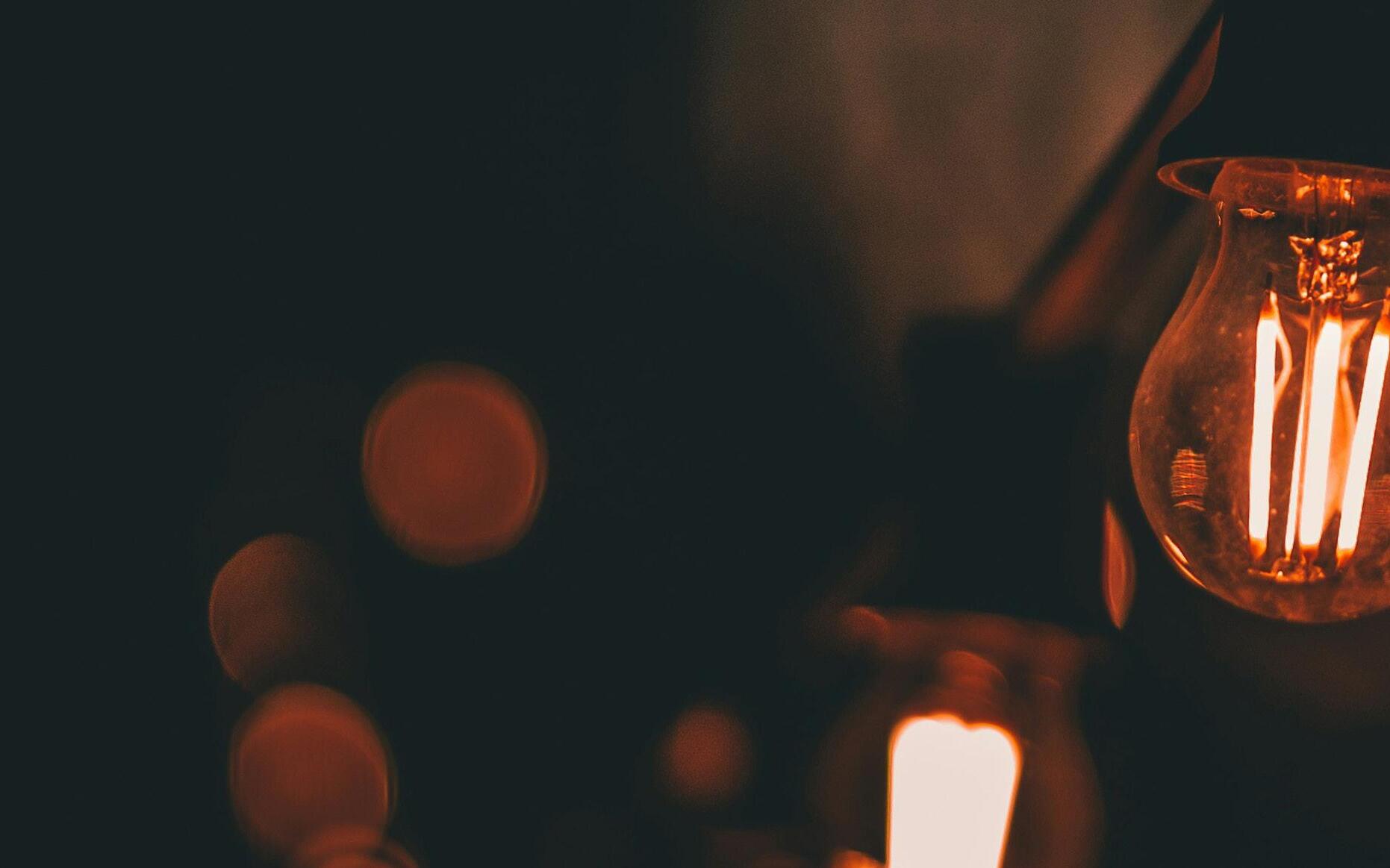
Monday, September 8 | 7 - 7:40 PM | ZOOM
What did newly freed slaves have to do with the VWU campus? What is the intentionally secret message at the statue of John Wesley? Why did a grove of trees cause deep controversy on campus? Why is a Peace Pole at the center of campus? Why was AIDS seen as particularly important here? These and other questions are addressed on a virtual tour of VWU’s sacred spaces, led by former VWU professors Larry Hultgren and Steve Mansfield.
A sacred space is more than just a physical location; it is a place imbued with significance, memory, and a sense of reverence. While some such spaces are obvious, (e.g., Yosemite National Park, the Lincoln Memorial, and the National Cathedral), VWU’s sacred spaces may not be as immediately recognizable. Join us as we visit (virtually) and learn about sites on the VWU campus that serve as touchstones for reflection, remembrance, and inspiration.
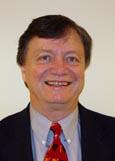
Larry Hultgren, Ph.D., Professor Emeritus of Philosophy at Virginia Wesleyan University, devoted over 50 years to teaching, research, and service in philosophy—particularly in the areas of medical and environmental ethics. Many students remember his dedication and care for our student-athletes, as well as his inspired leadership of the Portfolio Program.
Steve Mansfield, Ph.D., served and led the university for decades. Some students remember that he lived in the first residence hall on campus; many remember him as a beloved history professor. Since retiring, he is Vice President for Academic Affairs and Kenneth R. Perry Dean of the College Emeritus and continues to serve as the university’s Archivist.
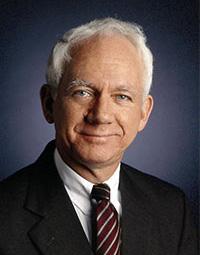
Saturday, October 4 | 10:30-11 AM
A Walking Tour of Unrecognized Sacred Spaces at VWU
Larry Hultgren, Steve Mansfield
Kick off your Saturday during VWU Homecoming & Alumni Family Weekend with a special walking tour of Virginia Wesleyan’s sacred spaces, hosted by Steve Mansfield and Larry Hultgren. This meaningful experience celebrates the spirit and traditions of Virginia Wesleyan.
Register at tinyurl.com/VWUsacredspaces
Your registration gift of $24 supports the Robert Nusbaum Center and includes the Sacred Spaces tour, Homecoming Finfest Picnic tickets (1 meal ticket and 2 drink tickets), and access to all other Homecoming Alumni and Family Weekend events.
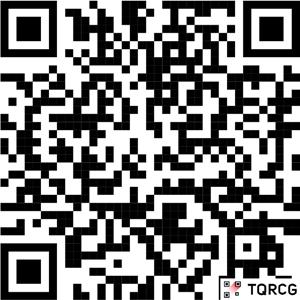
On these Monday evenings at 7 PM join VWU faculty over Zoom for 30-40 minutes as they present and share on various aspects of life in Coastal Virginia. Come for a presentation, stay for conversation, and feel free to bring your own popcorn (so long as your chewing is muted!). Please register for each program by noon on the day of the program, so we can email you both a Zoom link and any handouts that you might find interesting. Registration required by noon on the day of the program. Register with kjackson@vwu.edu or 757.455.3129.
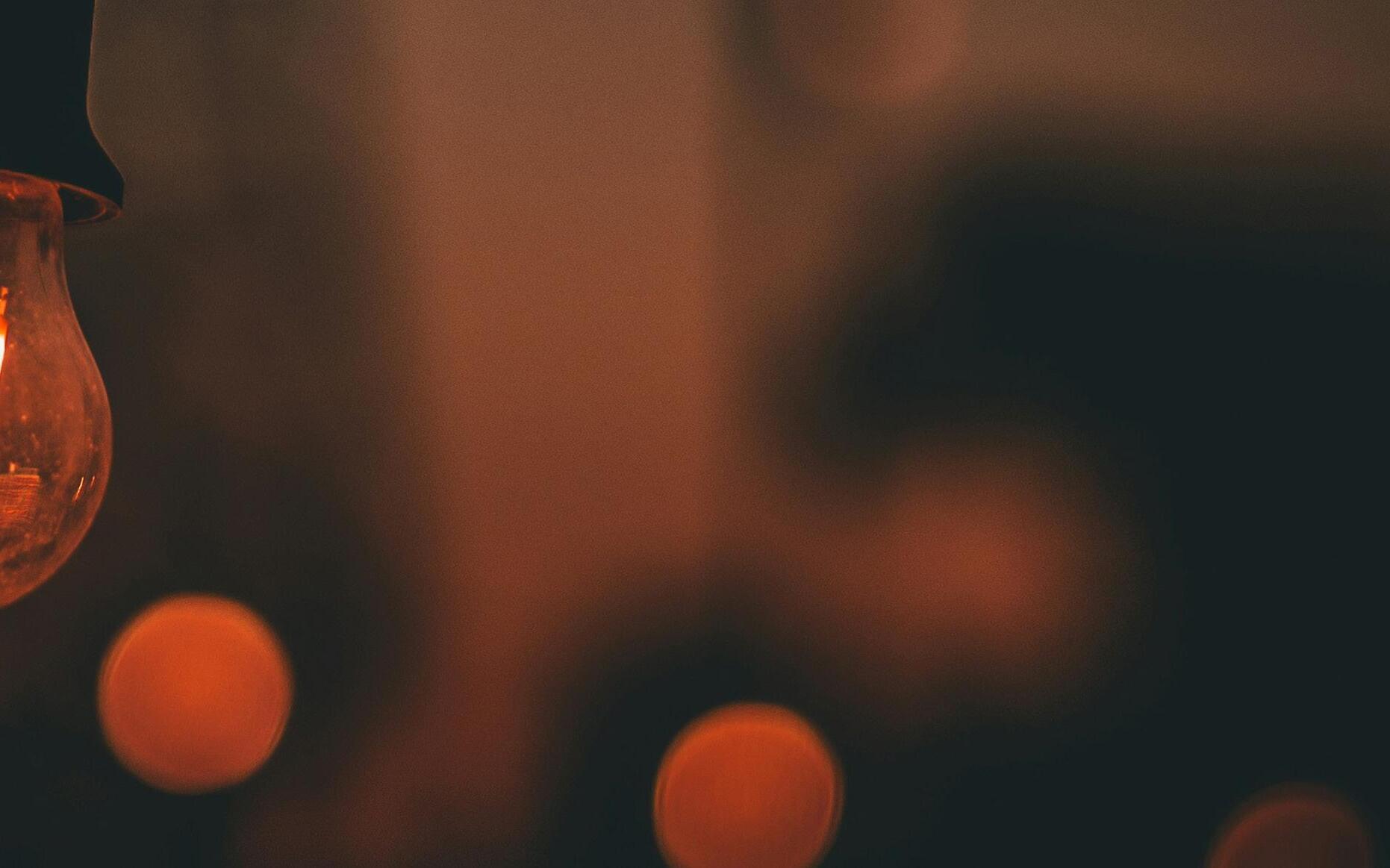
Monday, October 6 | 7-7:40 PM | ZOOM
In the 1980s and 1990s, Virginia Beach gained national attention as both a stronghold of the Religious Right and a magnet for the New Age movement, a spiritual crossroads where apocalyptic evangelicals and reincarnation-minded mystics coexisted just miles apart. Yet religious diversity has long defined our region: Ghent is encircled by a Jewish eruv; Norfolk is home to the first mosque ever established on a U.S. military base; and a major Buddhist temple stands just 1.3 miles from the VWU campus. Join Craig Wansink for a drive-through exploration of the surprising and richly layered religious landscape of Coastal Virginia.
Craig Wansink, Ph.D., studied at universities in Japan, Jordan, Germany, and Israel, completed his doctorate at Yale University, and served as a Research Fellow for the Pluralism Project at Harvard University. At VWU he serves as the Joan P. and Macon F. Brock, Jr. Director of the Robert Nusbaum Center, Batten Professor of Religious Studies and Leadership, and Chair of the Department of Religious Studies.
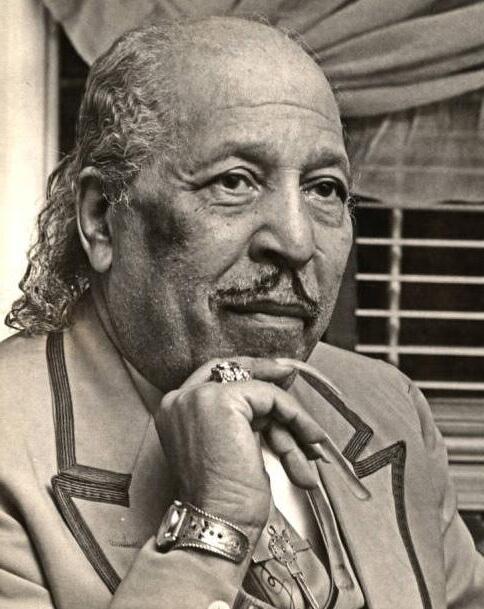
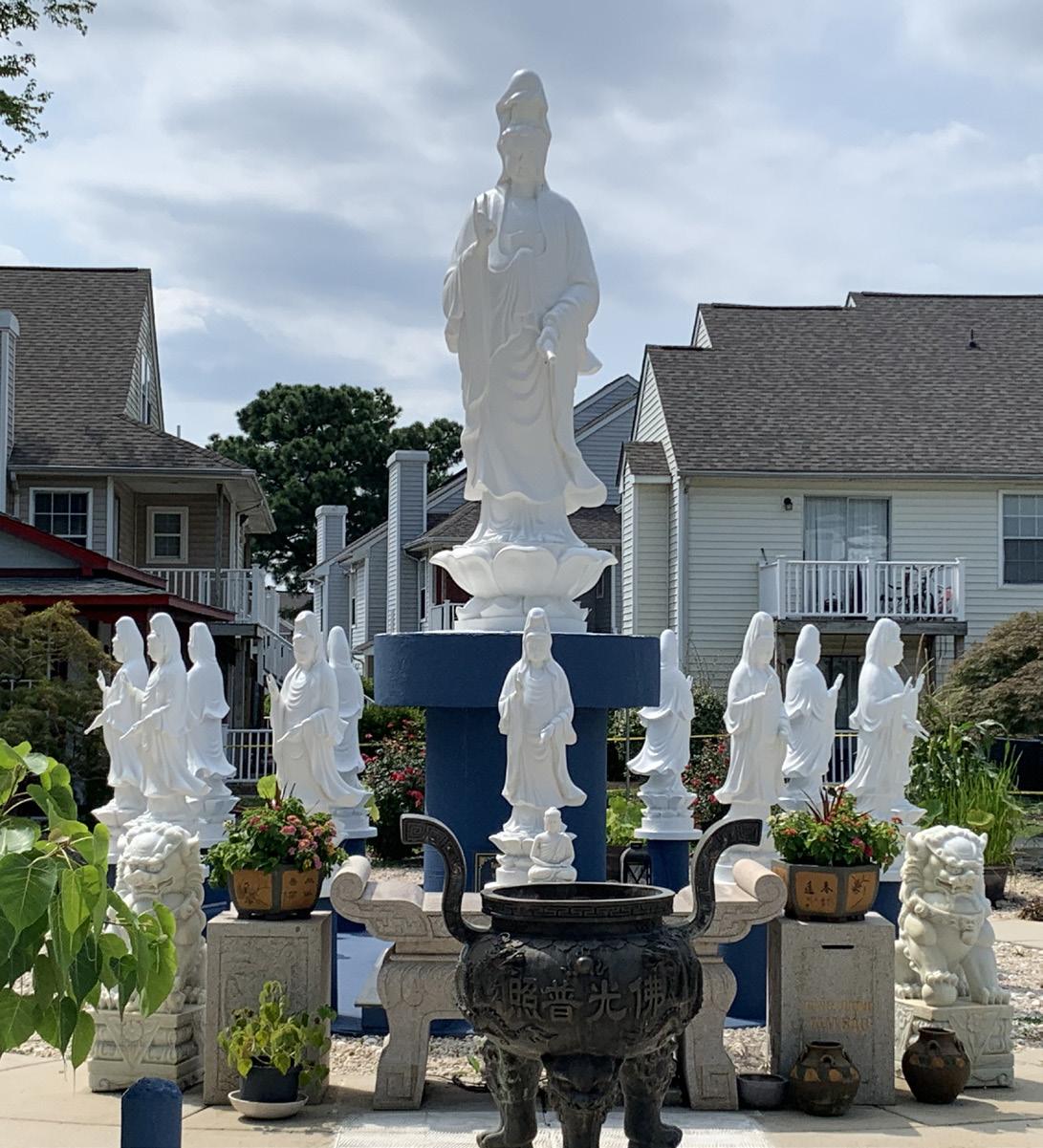
Monday, November 3 | 7-7:40 PM | ZOOM
AJewish New Yorker who moved to Virginia and made money as an exporter and who named his son Napoleon. A Kentucky native known as the “Sleeping Prophet” who gave psychic “readings” about health, past lives, and even Atlantis. A native of the Cape Verde Islands who wore loudly colored suits and glitzy jewelry, who had unusually long fingernails, and who was a celebrity preacher, faith healer, and miracle worker in the mid-20th century. Those three quirky figures each found their way to Coastal Virginia and lived in distinctive and unusual homes. Join Eric Mazur as he introduces us to these peculiar figures and their unusual homes.
Eric M. Mazur, Ph.D., is the Gloria and David Furman Professor of Judaic Studies at Virginia Wesleyan University and serves as the Fellow for Religion, Law, and Politics for the Robert Nusbaum Center. Mazur is a nationally and internationally recognized scholar whose research focuses on religion and popular culture, religion and law, and Judaic studies.
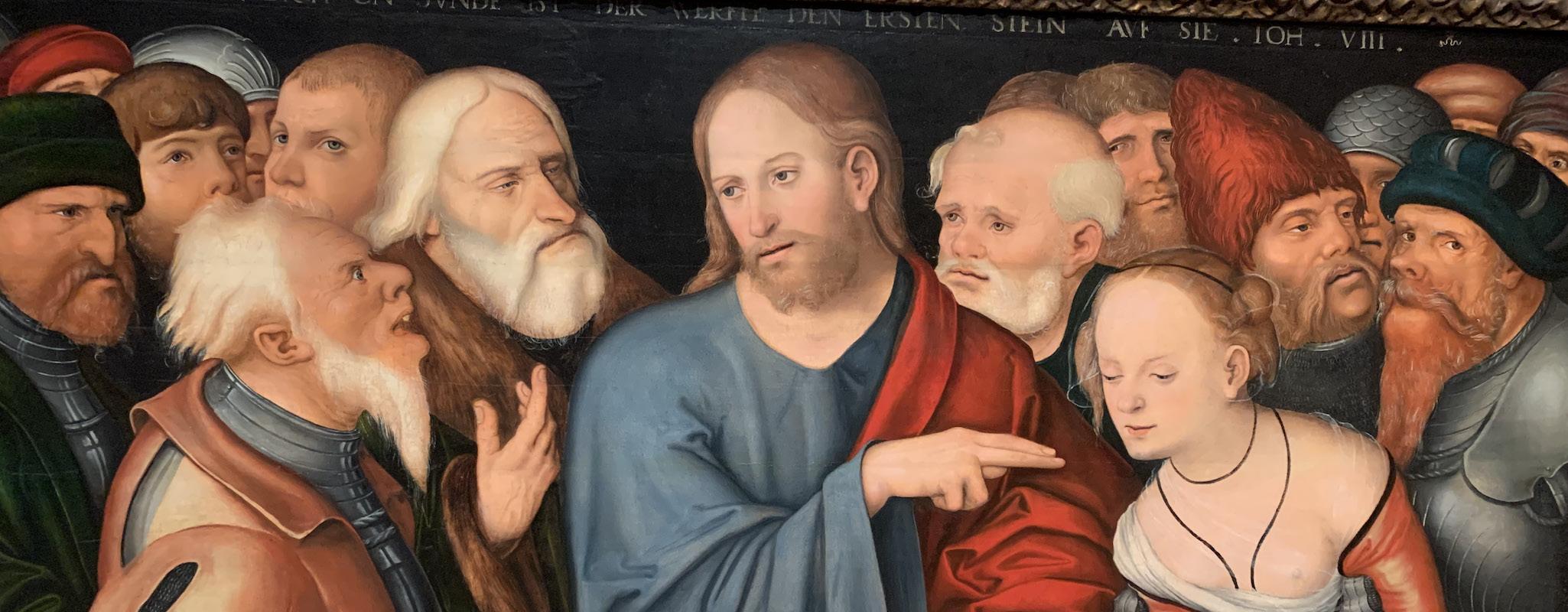
CHRYSLER GALLERY TOUR
Registration required by October 22. Register with kjackson@vwu.edu or 757-455-3129
CRAIG
WANSINK, LEVI TENEN
Museums everywhere face difficult questions: what to do with art created by problematic artists, taken from other cultures, or shaped by antisemitic or racist imagery. In some cases, museums choose to remove or reframe these works. This walking tour looks at specific works of art at the Chrysler—including Lucas Cranach the Younger’s Christ and the Woman Taken in Adultery; and Kehinde Wiley’s St. Andrew—as prompts to explore broader ethical questions involving provenance, misattribution, and restitution and as starting points for thoughtful reflection on how institutions like the Chrysler have, over the years, addressed these challenges.
DELIBERATIVE DIALOGUE
Thursday, November 6 | NOON -12:50 PM | BROCK COMMONS
Registration required by November 4. Register with kjackson@vwu.edu or 757.455.3129.
CO-WRITE OR CHEAT? A DELIBERATIVE DIALOGUE ON THE RELATIONSHIP BETWEEN WRITING,
FACILITATORS: CRAIG WANSINK, KELLY JACKSON, AND TIDEWATER COLLEGIATE ACADEMY STUDENTS
What is the legacy of the liberal arts in higher education? Are we witnessing the death of student writing or its next great evolution? With AI tools like ChatGPT now drafting essays, generating arguments, and polishing prose in seconds, the process of writing is being disrupted in ways that challenge our views of education and question the methods used. Is this the beginning of a new literacy, where students learn to collaborate with machines, or a shortcut that undermines originality, deep thought, and honest effort? From the printing press and calculators to Wikipedia and Google, technology has always rewritten the rules of learning. How is this new technology similar and different? This deliberative dialogue brings us together to reflect on what it means to think, to write, and to learn in the age of AI, where the stakes aren’t just academic.
Friday, October 24 | 11 AM - NOON | CHRYSLER MUSEUM OF ART, NORFOLK (Meet in Chrysler lobby)
REPEATED Saturday, October 25 | 11 AM - NOON
Craig Wansink, Ph.D., serves as the Joan P. and Macon F. Brock, Jr. Director of the Robert Nusbaum Center.
Levi Tenen, Ph.D., is Assistant Professor of Philosophy at VWU.
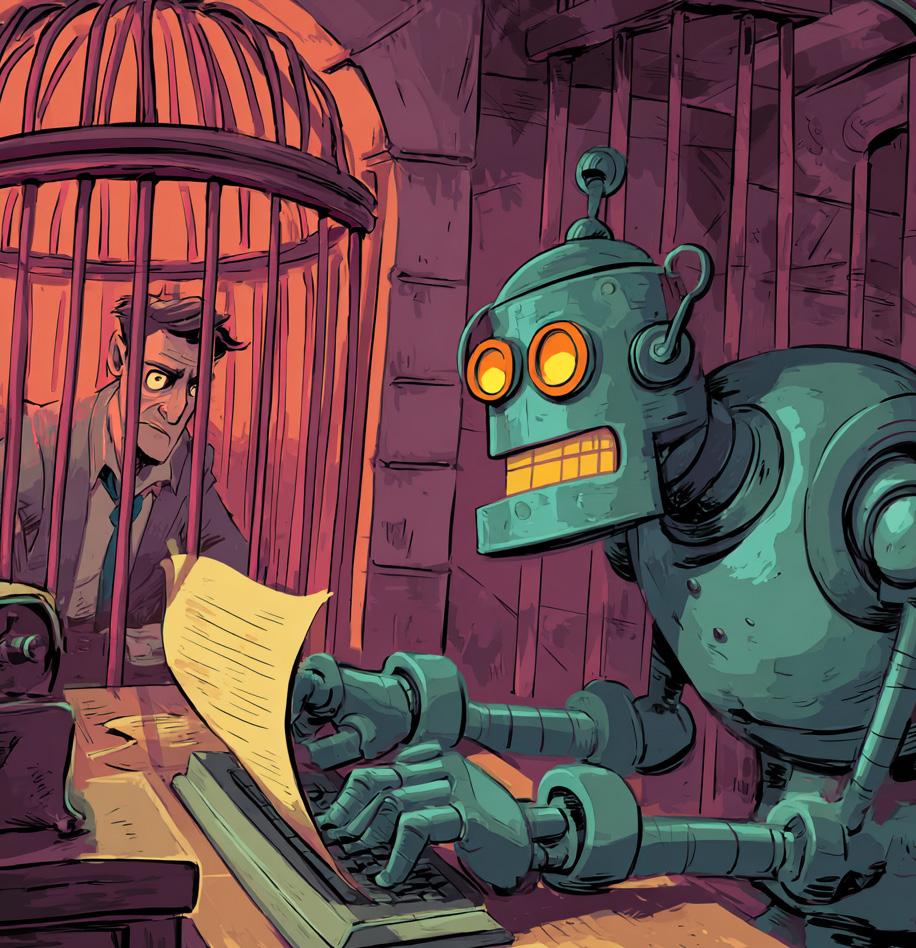
Craig Wansink, Ph.D., and Kelly Jackson serve as Director and Associate Director of the Robert Nusbaum Center, respectively. Tidewater Collegiate Academy is an innovative learning community at the University that focuses on global citizenship, 21st century skills, and service.
NUSBAUM AT NIGHT
If This Ground Could Talk: A Virtual Tour of Unrecognized Sacred Spaces at VWU
Larry Hultgren, Ph.D., Steve Mansfield, Ph.D.
Monday, 7-7:40PM | ZOOM Registration required. Register by noon with kjackson@vwu.edu or 757-455-3129
What Should We “Never Forget”?
Local Lives that Still Inspire
Thursday, 12-12:25 PM Peace Garden, Outside of Clarke Hall
CONSTITUTION DAY
Three Visions of Virginia
William C. Wooldridge
Thursday, 12-12:50 PM | Brock Commons
COOKSON LECTURE
Is Where You Live Making You Sick? How Racist Policies Poison Communities in Coastal Virginia
Johnny Finn, Ph.D.
Thursday, 12-12:50 PM | Brock Commons
Norfolk Stories That Have Shaped Our Lives
Peggy Haile McPhillips
Thursday, 12-12:50 PM | Brock Commons
NUSBAUM AT NIGHT
Faith of Our Neighbors: World Religions in Coastal Virginia
Craig Wansink, Ph.D.
Monday, 7-7:40 PM | Zoom Registration required. Register by noon with kjackson@vwu.edu or 757-455-3129
The Witch Next Door: Memory, Myth, and Meaning in the Story of Grace Sherwood
Scott O. Moore, Ph. D. Thursday, 12-12:50 PM | Brock Commons
The Stories Beneath Our Feet: The Nansemond, Our Campus, and the Returning of Honored Traces of the Past
Nikki Bass, Thomas Badamo
Thursday, 12-12:50 PM Peace Garden, Nusbaum Center, Clarke Hall
CHRYSLER GALLERY TOUR
Suspicious, Silenced, and Sacred: Stories Museums Don’t Always Tell Craig Wansink, Ph.D., Levi Tenen, Ph.D. Friday, 11 AM-12 PM
Chrysler Museum of Art, Norfolk (Meet in Chrysler Lobby)
Registration required. Register by Oct. 22 with kjackson@vwu.edu or 757-455-3129
25
CHRYSLER GALLERY TOUR
Suspicious, Silenced, and Sacred: Stories Museums Don’t Always Tell Craig Wansink, Ph.D., Levi Tenen, Ph.D. Saturday, 11 AM-12 PM
Chrysler Museum of Art, Norfolk (Meet in Chrysler Lobby)
Registration required by Oct 22. Register with kjackson@vwu.edu or 757-455-3129
30 Swamp Survival, Slavery, a Unique Economy, and the Great Dismal Swamp
Marcus P. Nevius, Ph.D.
Thursday, 12-12:50 PM | Brock Commons
3
6
NUSBAUM AT NIGHT
Tidewater’s Houses of the Holy: The Homes of Moses Myers, Edgar Cayce, and Sweet Daddy Grace
Eric M. Mazur, Ph.D.
Monday, 7-7:40 PM l ZOOM Registration required. Register by noon with kjackson@vwu.edu or 757-455-3129
DELIBERATIVE DIALOGUE
Co-Write or Cheat? A Deliberative Dialogue on the Relationship Between Writing, Critical Thinking, and ChatGPT Craig Wansink, Ph.D., Kelly Jackson, and Tidewater Collegiate Academy Students Thursday, 12-12:50 PM | Brock Commons Registration required. Register by Nov 4 with kjackson@vwu.edu or 757-455-3129
13
Black Freedom, the Burning of Norfolk, and the Birth of American Independence
Andrew Lawler
Thursday, 12-12:50 PM | Blocker Auditorium
20 Monuments and Morality: How Public Sites Shape Our Values, and How They Ought to Do So
Levi Tenen, Ph.D.
Thursday, 12-12:50 PM | Blocker Auditorium
Rock Painting
Thursday, 1-4:30 PM | The Truist Lighthouse, Clarke Hall
VIR GINIA WESLE YAN UNIVERSIT Y YA N
DIVERSIT Y | DIAL OGUE | F AITH | FREEDOM
Craig Wansink, Ph.D.
Joan P. and Macon F. Brock, Jr. Director of the Robert Nusbaum Center, Batten Professor of Religious Studies and Leadership, and Chair in the Department of Religious Studies
Kelly Jackson Associate Director of the Robert Nusbaum Center
Eric M. Mazur, Ph.D.
Fellow for Religion, Law, and Politics for the Robert Nusbaum Center, and the Gloria and David Furman Professor of Judaic Studies
757.455.3129 vwu.edu/nusbaumcenter NusbaumCenter@vwu.edu
Understanding
DIVERSITY | DIALOGUE | FAITH | FREEDOM is published twice a year by the ROBERT NUSBAUM CENTER at Virginia Wesleyan University
EDITOR Craig Wansink, Ph.D.
MANAGING
EDITOR Kelly Jackson
ART DIRECTOR Kayla Monroe
Thursday, December 4 | 1-4:30 PM |
Join us for a time of reflection on values relating to peace and community. Join VWU Sociology Professor Kathy Stolley and Nusbaum Center Associate Director Kelly Jackson for a session of rock painting. Some of the stones painted will become sources of inspiration in the university’s peace garden. Please join us to relax and create something meaningful.
